- Home
- Special Report
Special Report
You are visitor n° 





Govt. Should Pay New Minimum Wage By 30 September-AWC
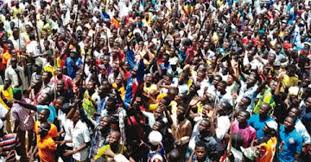 PRESS RELEASE
PRESS RELEASE![]()
Workers Welfare : Michael Imoudu As A Role Model
One
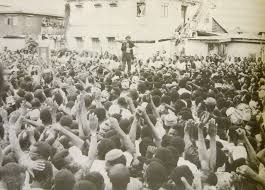
The activities of Labour leaders today is the raging debate among workers in Nigeria. Workers express sadness and worry over the way their leaders handle issues concerning them.
While the workers continue to wallow in the vicious cycle of poverty, hunger and worry, their leaders insist that they should be patient and show understanding with the Government.
The agility and activeness of labour leaders of the present time, is determined by the political class and not by the deteriorating condition of workers in the country.
Up till this moment, the name Michael A thokhamien Imoudu, represents a good example of a labour leader with a difference within the Nigerian territory and has continued to serve a s a source of inspiration for the present set of labour leaders. Perhaps.
Imoudu was born on 7, September, 1902, to a Soldier, who had fought in East Africa. His upbringing resulted into his fearless personality. He did not have fear for witches or wizards, master or servant, black or white.
At the age of 14, he began his education at the Government school, Ora. In the course of his education, he received double promotion to standard one. After the death of his Father, the forward looking young Imoudu moved on in his quest for education, at various times at Ontisha, Benin, Sapele, Warri and Agbor.
His adult life revolved on protests against wrong doing by constituted authority. As a student of the Government school, Agbor he staged his first protest.
He led students of the school to protest against the alleged embezzlement of Empire funds by the school’s teachers. This resulted in the manhandling of the Headmaster.
At various times, he worked as linesman in the Department of Post and Telegraph (P and T) in 1928 and an apprentice machinist at the Railway Corporation. He worked tirelessly on three shillings and four pence per day. The work conditions depressed those in the railway and it was noticeable, but the grievances of the railway men were uncoordinated. During the industrial action of the sectional foundery men in 1931, Imoudu spearheaded a platform to fight for the rights of workers. This he made possible by opting to work as journey man at a reduced wage of three shillings per day.
On 20, January, 1940, Imoudu was the only one among his colleagues, who signed the registration document of the Railway workers union and on 7, October, 1940, Imoudu was elected President of Railway men.
Two
The need for an increase in wages and better working conditions prompted Michael Imoudu to lead a demonstration from the locomotive yard in Ebute metta, Lagos to the Government House situated at Marina, Lagos Island, Lagos.
The Governor General of the Colony of Lagos, Bernard Bourdillon noticed that any form of industrial action at that period, could disrupt railway supplies to the coalition, during the Second World War in 1941. It was on this premise he acceded to a 50 per cent pay rise for the workers.
This success, further inspired Imoudu to put forward more demands, among which were conversion of daily casual labour to salaried employment, Saturday work with pay, permanence of daily labour, holiday travel grant and payment of arrears to cover 1932 to 1942 of unpaid entitlements.
This did not go down well with Bourdillon, who facilitated the termination of Imoudu’s appointment on 23 January, 1943 and also ordered his arrest under the Nigeria General Defense Regulations, 1941.
In quick succession he was relocated and remanded at the Benin prison, while in prison, he influenced inmates to demonstrate against poor feeding and other deplorable prison conditions.
In response, the British Colonial Government in 1943, restricted Imoudu’s movement to the palace of the paramount Chief of Auchi and made an order for him to report twice a week to the Auchi Police station.
As a result of a face off with the District Officer of Auchi and his moves to facilitate the establishment of peasants’ cooperatives for the benefit of peasants in Etsako and Ora, he was again remanded in the Auchi prison.
Some of his comrades, including T.A Bankole openly spoke against Imoudu’s action, to the hearing of the Chief Secretary of Government.
After spending two and a half years in prison, the labour activist was set free.
A mass rally was held at Oko-Awo, Lagos to celebrate his release from prison, while nationalists such as Herbert Macaulay were on ground to grace the occasion.
In June 1945, he successfully led over 30,000 workers to down tools for 44 days.
The industrial action was hinged on the inability of the colonial Government to actualize the promise of Bourdillon in 1942, to review allowances according to living index.
Bourdillon’ successor, Arthur Frederick Richards vigorously refused to pay the allowance.
This resulted in the abrupt end of the unpopular Richards constitution, and set the stage for self government.
Three
Discrimination was the order of the day during the colonial era. In November, 1947, Imoudu led others to demonstrate against racial discrimination at the Bristol Hotel, Lagos.
In the cause of the demonstration, he was physically assaulted and arrested by the Police.
However, of worry, is the self-preservation approach of present day labour leaders.
At different times, he mobilized the conference of the Nigeria Bar Association (NBA) to protest against colonial rule and also workers and peasants for the independence movement led by Dr. Nnamdi Azikwe, during the nationwide tour of the National Council of Nigeria Citizens (NCNC), to raise funds and support for the Nigerian delegation to the constitutional conference in London.
The Labour wing of the NC-Democratic Grand Alliance, of which Imoudu was a member, won four seats in the Lagos Town Council elections in 1950.
In 1964, Imoudu led the general strike against the restriction of Democracy, which was targeted at compelling the Government to implement the report of the Morgan commission. In addition, he was a member of the Marxist Socialist Workers and Farmers Party.
In the Second Republic, he was Vice President of the Peoples Redemption Party(PRP) led by Mallam Aminu Kano.
His track record formed the basis for his becoming the founding President of the Nigeria Labour Congress(NLC) in 1964. The NLC of today possess a different design and ideology.
Sadly, pragmatic approach to labour issues and concepts remain lacking, even as Labour leaders' sacrifices and tribulations for Nigerian workers are cosmetic, debatable and trailed by controversy.
Those in the labour struggle, with Imoudu's frame of mind and character are relatively few and extremely difficult to identify, in these days of ''he who pays the piper, dictates the tune''.
Travel Ban : President Buhari Intends to Recycle List America Gave OBJ-Dr. Agoro/ /Meaza Ashenafi Becomes Ethiopia's First Woman Federal Supreme Court President
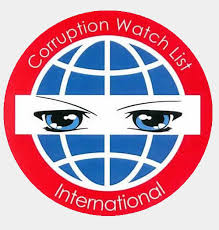
The Presidential candidate of the National Action Council, Dr. Olapade Agoro has declared that the list of prominent Nigerians placed on travel ban by the present administration was the was the same as that the United States of America gave Chief(Dr.)Olusegun Obasanjo during his first term as President.
Dr. Agoro made this declaration in a chat with People.
He also called on President Muhammadu Buhari to bar those on the watch list from contesting for elective positions in the 2019 general elections.
''Nigerians are dead heads, when it comes to news coverage. You discover that Nigerians make noise out of nothing. If President Muahmmadu Buhari is bold, if President Muhammdu Buhari is courageous, he should order that those on the list shouldb be barred from contesting for the general elections, they should be barred by INEC.''
''The United States of America(USA) gave President Olusegun Obasanjo the list during his first term as President. The list had big names. The list vanished from his table. The US sent another list. President Buhari is making noise out of nothing. The list America gave Nigeria during Chief Obasano's tenure is what they have being recycling. And nobody has taken any firm decision. Those on the list have been travelling. The President should say that anyone indicted for corruption should be prevented from contesting elections. Anyone having a corruption case should be barred from the electoral process until such a person obtains clearance'', he opined.
Dr. Agoro opined that there were more qualified Nigerians to lead the country aside from the incumbent President and Alhaji Atiku Abubakar.
''I don't see the two names as anybody, I don't see President Buhari and Alhaji Abubakar as people we should be rejoicing over in the polity, there are better names, there are better people'', he concluded.
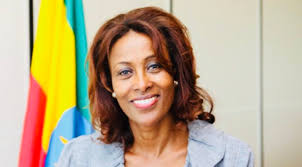
The Ethiopian Parliament has endorsed prominent women rights defender, Meaza Ashenafi as the first woman Federal Supreme Court President.
Ethiopia presently has a female President and half the cabinet are female.
The first women president, Sahle-Work Zewde has worked as United Nations representative in African Union. President Zewde (68), has also worked in Ethiopia's Foreign Service for decades. She also served as Ambassador to Senegal, with accreditation to Mali, Cape Verde, Guinea-Bissau, Gambia and Guinea, from 1989 to 1993.
Ashenafi has served as a Judge of the High Court of Ethiopia between 1989 and 1992. In 1993 she was appointed by the Ethiopian Constitution Commission as a legal adviser.
In 1995, Ashenafi founded the Ethiopian Women Lawyers Association (EWLA), and became its executive director. Through her legal contacts, she has been instrumental in campaigning for women's rights in Ethiopia; her Fighting For Women's Rights In Ethiopia group had approximately 45 graduate lawyers working for it in 2002.
She has also held a position with the United Nations Economic Commission for Africa. She helped lead the development of the first women's bank in Ethiopia, Enat Bank, which was established in 2011 and as of 2016 chairs its board of directors. She has won numerous awards in recognition of her work.
A Govt that is yet to meet the expectations of Nigerians will not receive their blessings-Grand Imam Shafaudeen-in-Islam
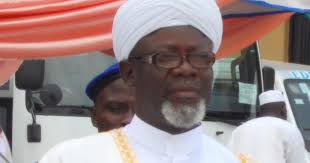
President Muhammadu Buhari has promised not to complain about Nigeria's problems any more, but to address same in due course. President Buhari who made this promise in far away, Poland , however did not give convincing reasons why he took this decision, coming just two months to the general elections.
Nigerians insist that the present administration is yet to meet their expectations, one of their expectations is for President Buhari to assent to the 2018 electoral act amendment bill, but surprisingly the President has with held his assent.
Expectedly, Nigerians have have expressed doubts over the possibilities of resolving the several challenges confronting the country in six months.
In this interview with Poverty Line, the Founder, Spiritual Head and Grand Imam of Shafaudeen-in-Islam Worldwide, Prof. Sabitu Olagoke says the Federal Government is yet to meet the expectations of the electorate. Excerpts :
Nigerians are still complaining of several shortcomings of governance, what do you think is the solution ?
Nothing is impossible to do and achieve in the face of conducive environment for development, ranging, from the political will of government and his party functionaries.
This is behind the successes and feat achieved by developed countries including Japan, China, Singapore and Malaysia.
However,, using SWOT analysis, the areas of weaknesses and threats have overwhelmed Mr. President to the extent that the environment to succeed in addressing the myriad of problems confronting Nigeria, being the very short term remaining,creates a mind boggling scenario of doubts in the minds of all Nigerians. 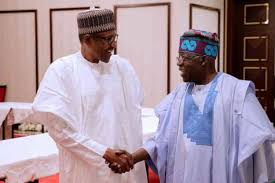
This is because the land is more viscose to threats more than ever before.
If Nigerians are talking about the All Progressives Congress(APC) carelessness through internal wranglings and immature politics of selective approach towards fighting corruption, and the'dead 'Peoples Democratic Party(PDP) with the the support of the other political parties, the
opposition are already up in'arms' against the frail ruling party in wrestling power from the incumbent.
It is unfortunate that the gullibility of Nigerians,due to the dysfunctional system of education, religion and socio-political and economic management as evident in the the way the PDP is now being celebrated without any preferred alternative even by the youth, whose future have continually been toyed with in the 16 years of the PDP ruler ship without conscience.
The structure on ground is equally not favorable to produce credible leaders because the amended constitution has not yet allowed for independent candidacy.
Surely, there is no way Nigeria will not be reverted to the game of business as usual because if the PDP happen to win the election, all the suspected looters in custody would be freed and the searchlight of the Economic and Financial Crimes(EFCC)would then be redirected towards perceived enemies again. 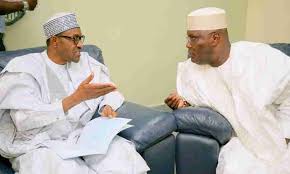
Is this the way Nigeria will continue to be ruled, for bequeath able legacy of sustainable development not to continue to be evasive as mere'tantalizing mirages' ?
This is not to say that the APC government has not been able to achieve in the areas of their reconstruction processes. For example, the rail system, the declared war on corruption and the aspect of economic diversification.
However, what makes a government popular is how it has impacted positively on the twin issues of HUNGER and POVERTY in the land, which ought to be in the areas of employment and job creation. This could be achieved through job creation, through vocation which government is yet to aggressively address.
This is an environment in which governments at the state level are yet to pay workers their dues, the pensioners are yet to sing the praises of government and the prices of commodities are not within the reach of the poor while qualitative education continues to be evasive to the children of the poor masses.
There is no way such government could receive the the blessings of the masses.
This weakness is equally a source of strength for the opposition, even if such ''OPPOSITION' is a known ''THIEF''.
Whatever happens to the APC government, if unpalatable to the government, must have been caused by the its State Governors and the Ministers who failed to realize that the masses still hold the mandate and the power to remove or to re-elect even against all odds.
The President and the ''POWERS THAT BE '' in the APC should address with all maturity the threats of internal wranglings and the insincerity of all their State Governors and the Ministers under who the masses continue to cry for survival.
The earlier they do this , the possible it becomes to succeed in the areas of perceived failures, to the disappointment of the opposition.
Power in Democracy still resides with the people, even though they have elected and appointed representatives who are supposed to serve.
Politics of rhetoric and hate speech must immediately be relegated to the background so that the masses will have the opportunity to fulfill their rights of access to their physiological needs.
The Fight Against Inequality Creeps into Africa/ /Sierra Leone First Lady Launches Womens' Financial Empowerment Project
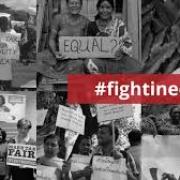 The Fight Against Inequality, a global grassroots movements has lined up activities around the world, including Africa to advocate for the end to the excessive concentration of power and wealth in the vicious grip of elites, and advance a more just, equal and sustainable world.
The Fight Against Inequality, a global grassroots movements has lined up activities around the world, including Africa to advocate for the end to the excessive concentration of power and wealth in the vicious grip of elites, and advance a more just, equal and sustainable world.
The alliance brings together social movements, environmental groups, women's rights groups, trade unions and NGOs across the world.
The Alliance's third global week of action, comes up from 18-25 January 2019, in more than thirty countries across the globe.
Activities will commence from the city of Guadalajara in Mexico with a walk called 'From el Colli to Davos'.
According to Fight Inequality campaigner Hector Castanon who is leading the advocacy, "Guadalajara has the second richest municipality in Mexico and is home to Central American migrants and displaced rural and indigenous communities that have left everything behind due to a lack of opportunities and organised crime.''
'' Salaries are under the poverty line, there is limited access to basic resources, poor public services and high crime rates. All of these has moved people to organize to solve their needs and exercise their rights." Castanon noted.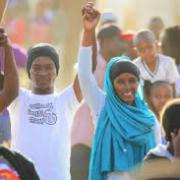
A festival would be organized in Shang'ombo, one of the poorest and most neglected districts of Zambia.
The festival the focuses on how politicians and elites make promises there during election campaigns and then forget the people, as well as people's stories of inequality and their solutions.
The festival will also feature music stars, such as Petersen Zagaze, BFlow and Maiko Zulu.
In explaining why she will be part of the event, A Zambian youth activist, Mzezeti Mwanza, discloses why she would particpate in the festival : '' Despite the country's natural resources, the majority of Zambians live below the poverty line and none of us are equal until all of us are equal".
The the Usawa Festival (or Equality Festival) will come up in Kenya and hip hop star Juliani is slated to perform.
In his remarks, Njoki Njehu, Africa Co-ordinator for Fight Inequality opines :
"Kenyans living the realities of inequality are organizing together - rural and urban, young and old, women and men. We understand the problems and have concrete proposals to end inequality. The solutions start with us. We have the answers."
The festival in the Philippines, will be organized between two adjoining communities, Baseco and Parola in Manila, that contrast starkly with the high-rise landscape of the city centre.
Through music, cultural activities and discussion, people will raise their experiences of inequality and their demands for change.
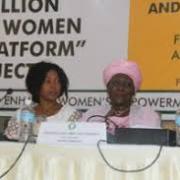 Sierra Leone's First Lady, Madam Fatima Bio has launched the ''50 Million African Women Speak Platform'' project.
Sierra Leone's First Lady, Madam Fatima Bio has launched the ''50 Million African Women Speak Platform'' project.
The project an initiative of the Africa Development Bank (AfDB) in collaboration with Economic Community of West African State (ECOWAS), the East African and Southern Africa Common Market (COMESA), and the Eastern African Community (EAC), worth $13.2 million was launched at the Bintumani International Hotel in Freetown.
Mrs. Bio dislcosed that the project was trageted at improving women's ability to access financial and non-financial information, to facilitate peer-to-peer learning, access financial opportunities build networks and establish partnership relationships with people and structures that can help them grow and support their businesses.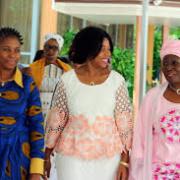
"If we have this opportunity in Sierra Leone, we believe the women in Sierra Leone will most definitely take advantage of the opportunity and use it wisely," she said.
Vice President of ECOWAS,Madam Finda Koroma called on women from all walks of life in Sierra Loenoe to assist the ECOWAS Commission in the mobilization of resources, both technical and financial that will be needed to make available the necessary data on Sierra Leone to include it in the platform in order to project the country as a place where women and girls can access the requisite information needed to create and finance their businesses.
"This project falls within the framework of Article 15 of Chapter 5 of the Additional Act on Equal Rights for Women and Men for sustainable development in the ECOWAS sub-region in May 2015, which calls on Members States to adopt all legislative and regulatory measures to ensure women's equal access to all economic and gainful opportunities," Madam Koroma stated.
Tanzania Govt Moves To End Shortage of School Furniture /
 The Tanzanian Government has taken positive steps to end the shortage of school furniture in schools in the country.
The Tanzanian Government has taken positive steps to end the shortage of school furniture in schools in the country.
To this end, the government has taken delivery of 22,000 tables and chairs from China, while another consignment would arrive in February.
The new chairs and tables have been distributed to Lumumba secondary school, Karume Institute of Science and Technology (KIST), Paje-Mtule Secondary, and Mkokotoni Vocational Training centre on Unguja Island, and in Pemba, Fidel Castro, Kengeja, Mohamed- Juma-Pindua Secondary, Mkanyageni, and Utaani secondary schools.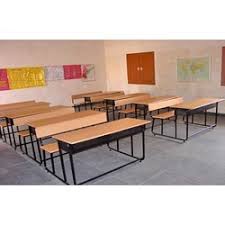
According to the head of the 'Eleven member Desk Campaign committee' put in place by President Ali Mohamed Shein in April 2017 to raise funds for furniture in schools , Mr. Haroun Ali Suleiman, ''This is a big achievement in our struggle to solve the problem of shortage of desks in the country. The 44,620 seats will benefit about 88,520 students in secondary schools''.
CJN's Travails : We Need to discourage the building of strong and powerful individuals-Prof Olagoke
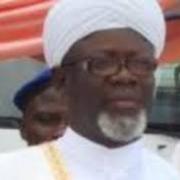 Not long ago, President Muhammadu Buhari, suspended the substantive Chief Justice of Nigeria(CJN), Justice Walter Onnoghen, over issues relating to Justice Onnoghen's assets declaration forms with the Code of Conduct Bureau.
Not long ago, President Muhammadu Buhari, suspended the substantive Chief Justice of Nigeria(CJN), Justice Walter Onnoghen, over issues relating to Justice Onnoghen's assets declaration forms with the Code of Conduct Bureau.
President Buhari based his actions on the order of the Chairman of the Code of Conduct Tribunal, Justic Danladi Umar. A sizable number of Nigerians at home and abroad have condemned the President's action, they argue that his action did not follow the rule of law and due process. Interestingly, a section of the political class applaud the action of the President while another section maintain that Justice Onnoghen' suspension was politically motivated. In this interview the Founder, Spiritual head and Grand Imam of Shafaudeen-in-Islam Worldwide, Prof. Sabitu Olagoke opines that the Federal Government should start building strong institutions and not strong individuals who are above the law.
Excerpts :
What is your reaction to the suspension of the Chef Justice of Nigeria, Justice Walter Onnoghen ?
Nigeria is the most unfortunate country where all equations have defied the natural rules of law and conservation of matters, which has always plunged the country into a state of disequilibrium.
Leaders do not respect the people that give them the mandate and the people also lack the culture of respecting our leaders.
Under these circumstances, the tripodal stand of Democracy viz-a-viz the Legislature, Judiciary and Executive, suffer from a non-aligned centroid or centre of gravity.
The three arms of government do not cooperate in the quest to functionally operate for accelerated development, where cohesion is lacking, Chinua Achebe's ''Things Fall Apart'' becomes a point of reference.
In developed countries, where there is integrity, immediately a public officer has been discovered to have abused the office he occupys, by not going through due process to attain it, resignation should follow.
The constitution may not specifically talk about suspension, but by implication, it must have addressed the areas of possible executive intervention. 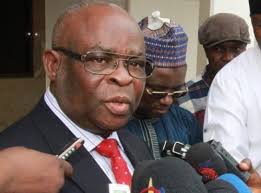
More so, when the President insisted that he acted on the order of the Chairman Code of Conduct Tribunal.
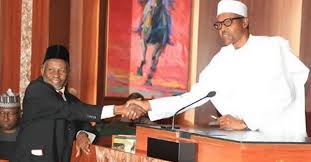
The major problem we are having in Nigeria is ignorance, due to the disturbing mass low level of education, where the majority of the people do not have direct access to the rights of the people, constitutionally or otherwise.
This has made the few governing us or those in positions of influence and affluence to kill people perpetually in a state of darkness, prompting them to pass judgement on issues that are intricate with bogus demand for explanation.
If an ordinary man had been trapped under such an allegation, the case would have been that of the passage of a silent judgement.
If the executive is not in the good books of the Legislature and the Judiciary, based on the antecedents of the records, sentiments would now be the only option for the masses on such issues like this.
When the culture of integrity is restored, we will stop hiding under the constitution which we all agreed is faulty ab intio because it was the import of the military Oligarchy in Nigeria.
Why is it taking us so long a period to overhaul or amend the constitution, as appropriate, to be able to offer good governance ?
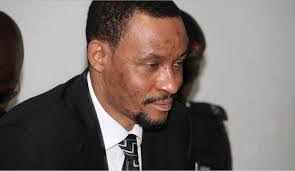 The whole scenario starting with the dismissal of the motion of the Chief Justice at the Appeal court, the clearance of the Chairman of the Code of Conduct Tribunal(CCT) of corruption allegations by the Economic and Financial Crimes Commission(EFCC), which is not a court of law, the petitions against the CJN, Acting CJN and the Chairman of the CCT presently before the National Judicial Commission(NJC) and the queries it has issued to the CJN and Acting CJN, while that of the Chairman of the CCT has been referred to the Federal Judicial Service Commission, portends that justice is now in the theatre of politics.
The whole scenario starting with the dismissal of the motion of the Chief Justice at the Appeal court, the clearance of the Chairman of the Code of Conduct Tribunal(CCT) of corruption allegations by the Economic and Financial Crimes Commission(EFCC), which is not a court of law, the petitions against the CJN, Acting CJN and the Chairman of the CCT presently before the National Judicial Commission(NJC) and the queries it has issued to the CJN and Acting CJN, while that of the Chairman of the CCT has been referred to the Federal Judicial Service Commission, portends that justice is now in the theatre of politics.
What is most important to Nigeria, is that we need to discourage the building of strong and powerful individuals, who are above the law, but focus on building strong institutions that will easily create a balance of justice system between the rich and the poor, using the tool of Corporate Governance Perception Index, that will make management, administration and governance to follow the due process of accountability and transparency.
The focus should be on the individual person brought to justice, no matter how highly placed such an individual might be, just like any common man would have been dealt with, without raising eyebrows.
Last edited: 04/02/2019
Add a comment
